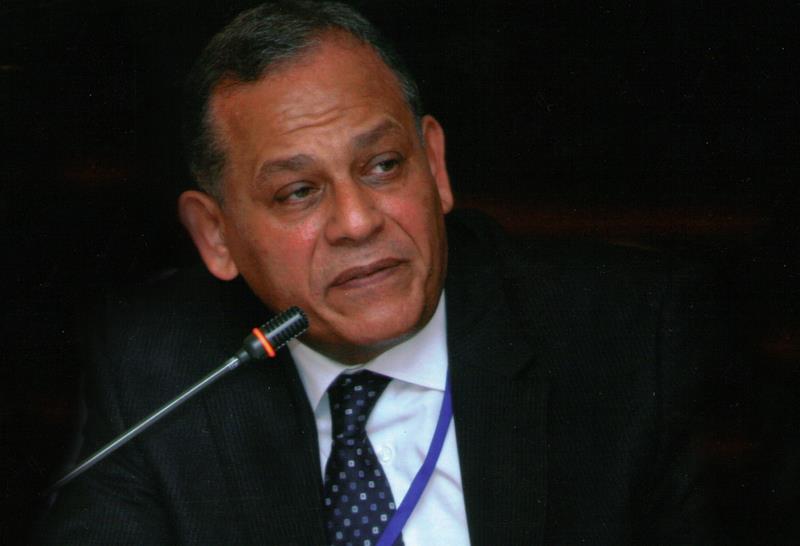NAIROBI: Kenya formally adopted a new constitution Friday in a ceremony attended by several African leaders including Sudan’s President Omar Al-Beshir, despite being indicted for genocide and war crimes.
His presence threatened to overshadow a landmark ceremony watched by tens of thousands of onlookers in which Kenya’s President Mwai Kibaki signed the constitution into law in Nairobi’s main park.
The document, overwhelmingly approved in a national referendum earlier this month, is a pillar of reforms aimed at averting a repeat of the violence that killed more than 1,000 people following the disputed 2007 election.
The new law, replacing the country’s 1963 independence constitution, maintains a presidential system, but with substantial checks, introduces a devolved system of government and consolidates democracy and basic rights.
Hordes of flag-waving Kenyans thronged Nairobi’s Uhuru Park (freedom park) where a military parade, a helicopter overflight and a 21-gun salute marked the elaborate ceremony.
"Today is a great day for Kenya," said Kibaki, who took a new oath of office after signing the new charter into law. "This is the most important day in the history of our nation since independence.
"As Kenyans, we should be proud of making history as one of the few nations in the world that have successfully replaced their constitution in peace time," said Kibaki after acknowledging the presence of Bashir by mentioning him by name at the start of his speech.
Prime Minister Raila Odinga was also sworn in under the new constitution, which however removes his position, but he will nonetheless remain in office until new elections in 2012.
Kenyans attending the ceremony praised the new law.
"I am proud to be a Kenyan. It is a great moment for the country and I am glad it has come in my lifetime," said George Otieno, who arrived at the venue at dawn.
Bashir, whose name was not on the list of heads of state expected to attend issued by the Kenyan foreign ministry, arrived at Uhuru Park and was ushered to the main dais.
The veteran leader appeared relaxed and smiling as he shook hands with other African leaders attending the ceremony.
The Sudanese president is subject to two arrest warrants issued by the International Criminal Court for atrocities committed by his forces in Sudan’s western province of Darfur.
Kenya, as a signatory to the treaty which set up the ICC, is obliged to cooperate with the court and arrest Bashir.
Among the heads of state attending were Uganda’s Yoweri Museveni, Rwanda’s Paul Kagame and President Ahmed Abdallah Sambi of Comoros. African Union (AU) chief Jean Ping was also present.
New York-based Human Rights Watch called earlier on the Kenyan authorities to either "arrest him or bar him entry" if he were to attend.
"Kenya is a state party to the ICC. The court’s treaty, the Rome Statute, requires states to cooperate with the court, which includes the execution of arrest warrants," HRW said in a statement.
"Kenya will forever tarnish the celebration of its long-awaited constitution if it welcomes an international fugitive to the festivities," said Elise Keppler of HRW’s International Justice Programme.
The ICC’s first-ever warrant against a sitting head of state was issued against Bashir in March 2009 on charges of war crimes and crimes against humanity. The second was issued in July 2010 on charges of genocide.
Bashir in July visited neighbouring Chad, which was at the time strongly criticised by the European Union and human rights groups for its refusal to arrest Bashir.
That visit was his first to an ICC member state, although both Chad and Kenya are members of the African Union which has said that the arrest warrants against Bashir are counterproductive for the quest for peace in Darfur.
The ICC has no police and relies on states that support it to carry out arrests.
An AU summit in Uganda in July accused the ICC prosecutor of being "condescending and rude", including over Bashir’s case, and reiterated its call called on member states to ignore the warrants.
The AU also rejected an ICC request to open a liaison office in Africa, where all of the world court’s ongoing cases originate.
The United Nations says up to 300,000 people have died since conflict broke out in Darfur in 2003, when ethnic minority rebels took up arms against the Bashir’s Arab-dominated regime for a greater share of resources and power.
Sudan’s government says 10,000 have been killed.


